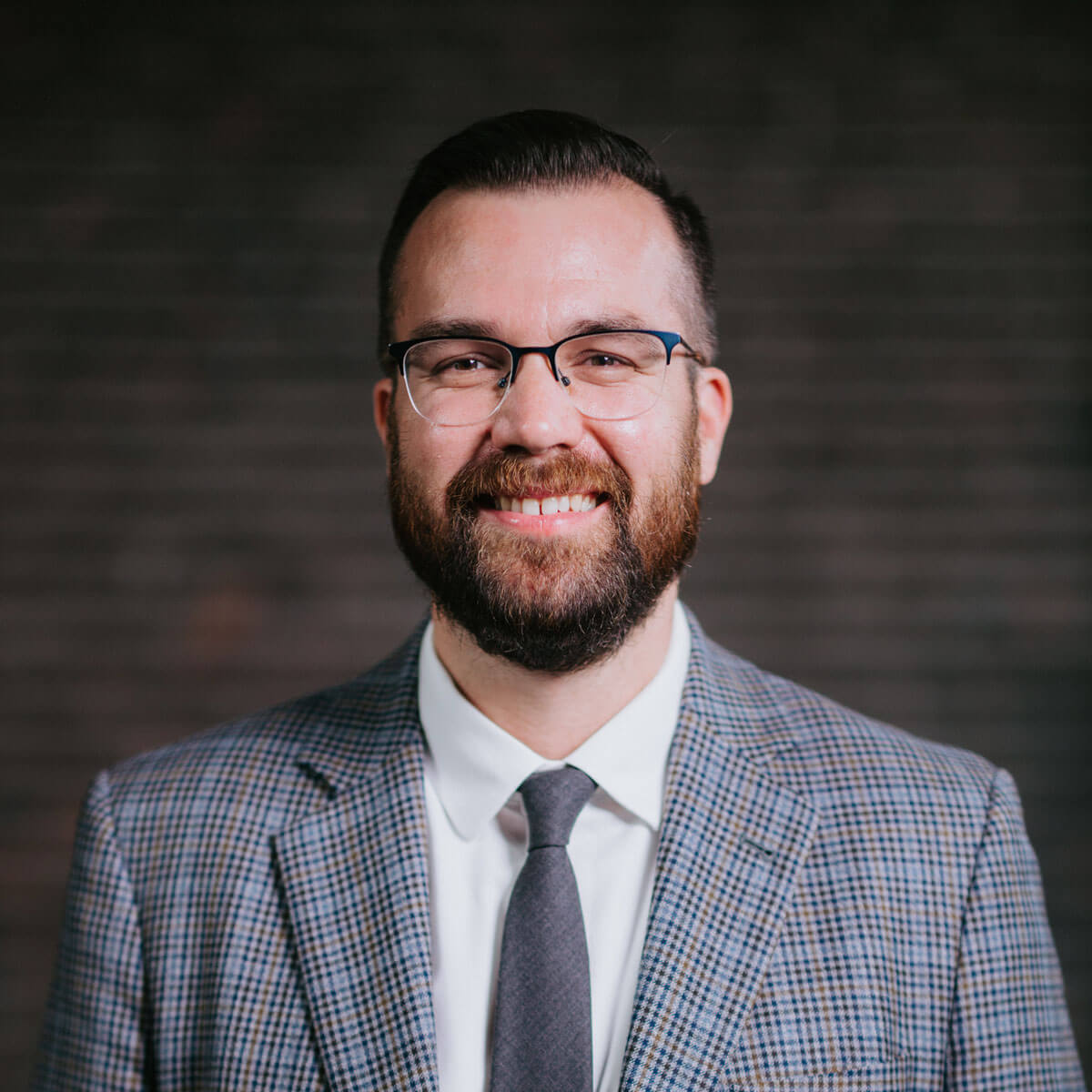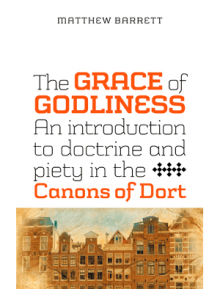Today we continue our interview with Dr. Matthew Barrett concerning his new book, The Grace of Godliness. If you missed part one, you can catch up here.

Books At a Glance (Fred Zaspel):
Let’s talk about Assurance. The Calvinist will say that the Arminian has little room for Assurance, given its focus on the human will and the possibility of falling away. But the Arminian will wonder how the Calvinist can be assured that he is, in fact, numbered among the elect, those for whom Christ died! How would the pastor-theologians of Dort argue that their doctrines foster genuine assurance and not a mere presumption?
Matthew Barrett:
Dort recognizes that there are some Christians who have serious struggles with assurance, questioning whether they are numbered among the elect. This doubt usually creeps in when they are failing to overcome sin. What does Dort prescribe? To begin with, Dort points them to the objective work of Christ. The believer, especially when struggling with sinfulness, is to “flee for refuge to Christ crucified.” It is at the cross that redemption has been accomplished and secured, where forgiveness flows for all eternity.
Dort does not stop there, but turns to the subjective aspect of the Christian life as well. The sinner must mortify the flesh (John Owen must have read Dort!) and put on godliness. In doing so, the Calvinist, unlike the Arminian, is not left without the promise that those whom the Father has called, Christ will indeed keep to the end. God is faithful, mercifully strengthening his children in grace, powerfully preserving them to the end, even through valleys when all seems hopeless. Therefore, there is an assurance that not only comes from unconditional election but divine preservation as well. This assurance, warns Dort, does not derive from “some private revelation beyond or outside the word, but from the faith in the promises of God which he has very plentifully revealed in his word for our comfort, from the testimony of the Holy Spirit testifying with our spirit that we are God’s children and heirs, and finally from a serious and holy pursuit of a clear conscience and of good works.”
It is on the subject of Christian assurance that I believe Dort is at its best. And so I would especially recommend chapter 6 to readers.
 Books At a Glance:
Books At a Glance:
How, according to Dort, does its view of particular redemption, as opposed to the Arminian view of universal atonement, better suited to foster worship?
Matthew Barrett:
Absolutely. Dort’s emphasis on the particularity of Christ’s atonement comes from its understanding that in Scripture, while God has a general love for all people (e.g., his gospel call is freely preached and offered to all), he has a special, definite and saving love meant only for his elect, whom Scripture calls his sheep (John 10:15, 27; 15:12-13) and offspring (Isa. 53:10). Therefore, Dort can say in 2.9:
This plan, arising out of God’s eternal love for his chosen ones, from the beginning of the world to the present time has been powerfully carried out and will also be carried out in the future, the gates of hell seeking vainly to prevail against it. As a result the chosen are gathered into one, all in their own time, and there is always a church of believers founded on Christ’s blood, a church which steadfastly loves, persistently worships, and – here and in all eternity – praises him as her Savior who laid down his life for her on the cross, as a bridegroom for his bride.
These elect children are purchased by the blood of the lamb and it is their sins that are paid for in full at the cross. Dort is overt: the response from the church, both here and in eternity, is praise and worship, because the Savior has laid down his life for her on the cross, “as a bridegroom for his bride.” As Paul says in Ephesians 5:25-27, “Husbands, love your wives, as Christ loved the church and gave himself up for her, that he might sanctify her, having cleansed her by the washing of water with the word, so that he might present the church to himself in splendor, without spot or wrinkle or any such thing, that she might be holy and without blemish.”
Therefore, it is the doctrine of limited atonement that sweetly reminds us that the church, and only the church, is the bride of Christ, for he has paid for her with his blood. It is this doctrine that Dort believes should elicit persistent love and worship of Christ, both here and in eternity.
Books At a Glance:
What is meant by the terms infralapsarianism and supralapsarianism? What was the balance of men represented at Dort on this matter? Was this a point in dispute at all as they met?
Matthew Barrett:
Infralapsarianism means below or subsequent to Adam’s fall, which is in contrast to supralapsarianism which means above or prior to the fall. The debate (which is an in-house debate among the Reformed) revolves around the logical order of God’s decree in the mind of God. The supralapsarian view argues that election and reprobation of persons are prior, logically speaking, to God’s decree to create and permit the fall. By contrast, the infralapsarian view, which many in the Reformed churches assumed even before Dort (see The Belgic Confession and Heidelberg Catechism), instead argues that God’s will to create and his decree to permit the fall are prior to his decree to elect some to salvation.
Dort’s language is a clear adoption of the infralapsarian position. However, this position did not come without some resistance. On March 6, 1619, in session 103, the delegates first presented their judgment on predestination. When the Dutch professors (Polyander, Thysius, and especially Walaeus) delivered their article on predestination, Francis Gomarus, a supralapsarian, objected. Polyander, Thysius, and Walaeus wrote that God had “chosen from the whole race, which had fallen through their own fault from their primitive state of rectitude into sin and destruction, a certain number of persons to redemption in Christ.” This language is infralapsarian in nature. The same can also be seen in their Leiden Synopsis. Gomarus, on the other hand, merely stated that when God elected he chose men out of the whole human race. No mention is made of mankind as sinful or fallen.
In the end, infralapsarianism was the position assumed by Dort for several reasons. For one, the infralapsarians held the majority and therefore wielded more influence at the synod. Moreover, the two major Reformed confessions that preceded Dort, the Belgic Confession (1561) and Heidelberg Catechism (1563), already assumed an infralapsarian position and besides Dort’s conviction that the infralapsarian view was in line with Scripture itself, Dort also knew it would be disadvantageous and problematic to contradict these Reformed confessions. Also, while Gomarus stood up for his supralapsarian view, his fellow supras (Antonius Walaeus, Bishop Carlton, etc.) did not assist him. However, we should not conclude that the supralapsarian view was considered heretical or unorthodox as was the Arminian view. While the supralapsarian view was considered by infralapsarians as missing the mark, nevertheless, it did not compromise God’s sovereignty, as did the Arminian view. Furthermore, Dort, which consisted of both infra- and supralapsarians, desired a unified voice against the Remonstrants. Therefore, at the end of the day, both supras and infras were able to sign on to the canons.
Note: If you missed part one of this interview yesterday, you can catch up here.

